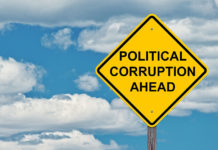Most people do not realize it but the rules, regulations and guidelines issued by federal bureaucrats carry the weight of law when it comes to obedience and enforcement – the very definition of the “pen and phone” style of governing championed by President Barack Obama.
These bureaucrats – who wield the power of the chief executive in their writings – are un-elected, unaccountable and as civil servants, they are almost impossible to fire.
Break this regulation . . . violate that rule . . . operate outside the guidelines and you could be in for a heap of legal trouble when the feds come knocking on your door.
So reports the Washington Examiner in a piece by Paul Bedard that says that the U.S. closed out the old year with a grand total of more than 21,000 new regulations with more than 2,375 more awaiting release in 2015.
Apologists for government will point to the “30-day” comment period before a new regulation can be finalized as the time when the voice of the people can be heard – but that’s about it.
For the most part, you can call or write to be heard only to be promptly ignored by regulatory agencies. Multiply that by 21,000 regulations issued by countless government employees and the idea of a public “comment period” becomes farce.
Rules, regulations and guidelines are expensive to comply with too.
In a report written by Clyde Wayne Crews and issued by the Competitive Enterprise Institute, the 2014 “total for final rules and regulations spelled out in the Federal Register was 3,541. Of the 3,541 final rules, 659 are expected to have an impact on small businesses.”
As Bedard writes, “American industries are taking a beating from President Obama’s rules makers, getting socked with nearly 50 percent more “economically significant” regulations than under former President Bush — and Obama still has two more years to go.”
For example, the EPA is moving ahead with regulations cracking down on emissions from coal plants and other carbon-heavy fuels and materials. In particular, the EPA’s decision to cap carbon dioxide emissions from power plants will effectively [ban] coal fired power plants from being built.
“If these regulations go into effect, American jobs will be lost, electricity prices will soar, and economic uncertainty will grow. We need the federal government to work as a partner, not an adversary, and to invest in America’s energy future,” said West Virginia Democratic Sen. Joe Manchin who represents a state that is heavily dependent on the coal industry.
Quoting the Competitive Enterprise Institute again, “those rules account for the bulk of regulatory costs on industries” – costs that are passed on to U.S. consumers in higher prices and that hobble the ability of business to compete – and profit – overseas.
Crew concluded that, “total regulations do matter, but so do costs and the trends in costly rules. Such things matter even more when use of the pen and phone and ‘acting when Congress won’t’ has been promised.”
In the end, the advantage goes to the president when a “pen and phone” is all that is needed to rule over the American people.






























